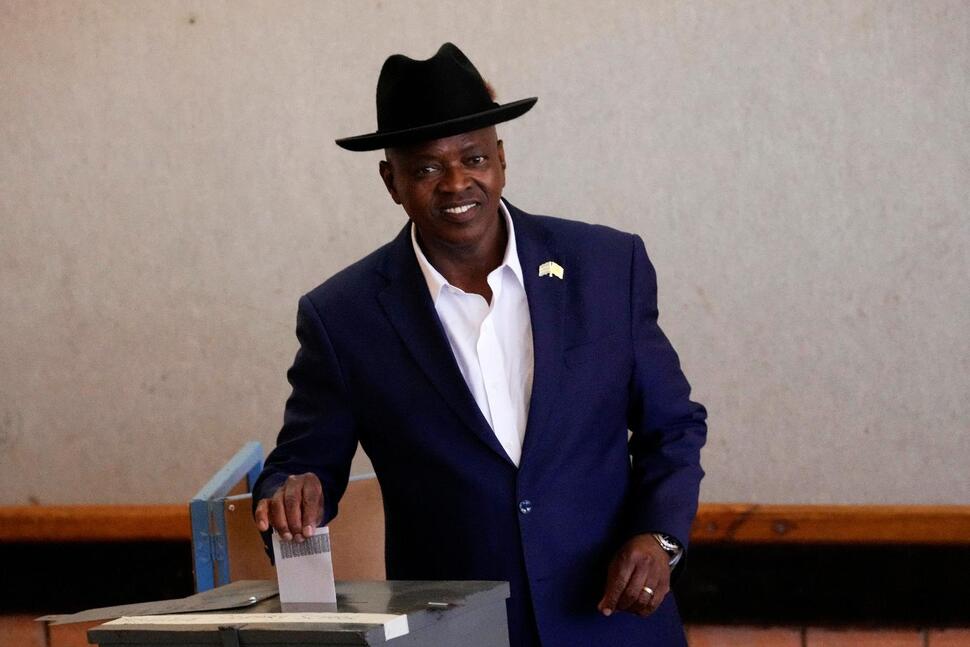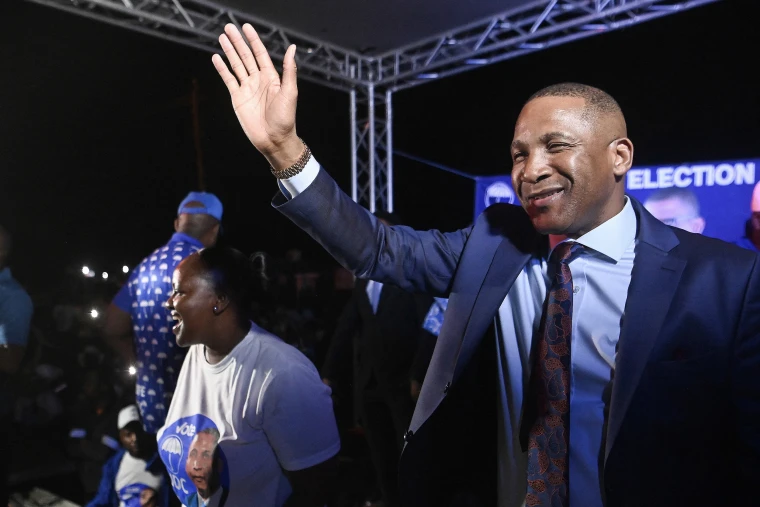Botswana’s President Mokgweetsi Masisi conceded defeat in the general election Friday, in a seismic moment of change for the country that ended the ruling party’s 58 years in power since independence from Britain in the 1960s.

Masisi’s concession came before final results were announced, with his Botswana Democratic Party (BDP) trailing in fourth place in the parliamentary elections. The opposition Umbrella for Democratic Change (UDC) held an overwhelming lead in the partial results, making its candidate Duma Boko the favorite to become the country’s next president.
“I concede the election,” Masisi said in an early-morning press conference two days after the vote. “I am proud of our democratic processes. Although I wanted a second term, I will respectfully step aside and participate in a smooth transition process.”
Botswana has long been held up as one of Africa’s most stable democracies and a post-colonial success story, largely due to its diamond-fueled economy. However, the country now faces new challenges, with a downturn in global diamond demand badly impacting the economy and leading to a sharp increase in unemployment, especially among young people.
The BDP had dominated Botswana’s politics for nearly six decades, but the mood for change became evident as voters expressed dissatisfaction with the government’s handling of the economic crisis. Masisi acknowledged that the party had “lost this election massively.”

Duma Boko, the 54-year-old Harvard-educated lawyer leading the UDC, is now poised to become Botswana’s next president. His party’s victory represents a significant political shift in the country, marking the end of the BDP’s long uninterrupted rule.
Botswana’s general elections decide the makeup of its Parliament, which then chooses the president. The opposition’s landslide win means Boko’s UDC will have the opportunity to form the next government and chart a new course for the diamond-rich nation as it seeks to diversify its economy and address the pressing challenges of unemployment and economic stagnation.
The peaceful transfer of power underscores Botswana’s commitment to democracy, even as the country navigates a critical juncture in its political and economic development. Masisi’s concession and the UDC’s triumph signal a new era for Botswana, with the potential for significant policy changes and reforms under the incoming administration.


